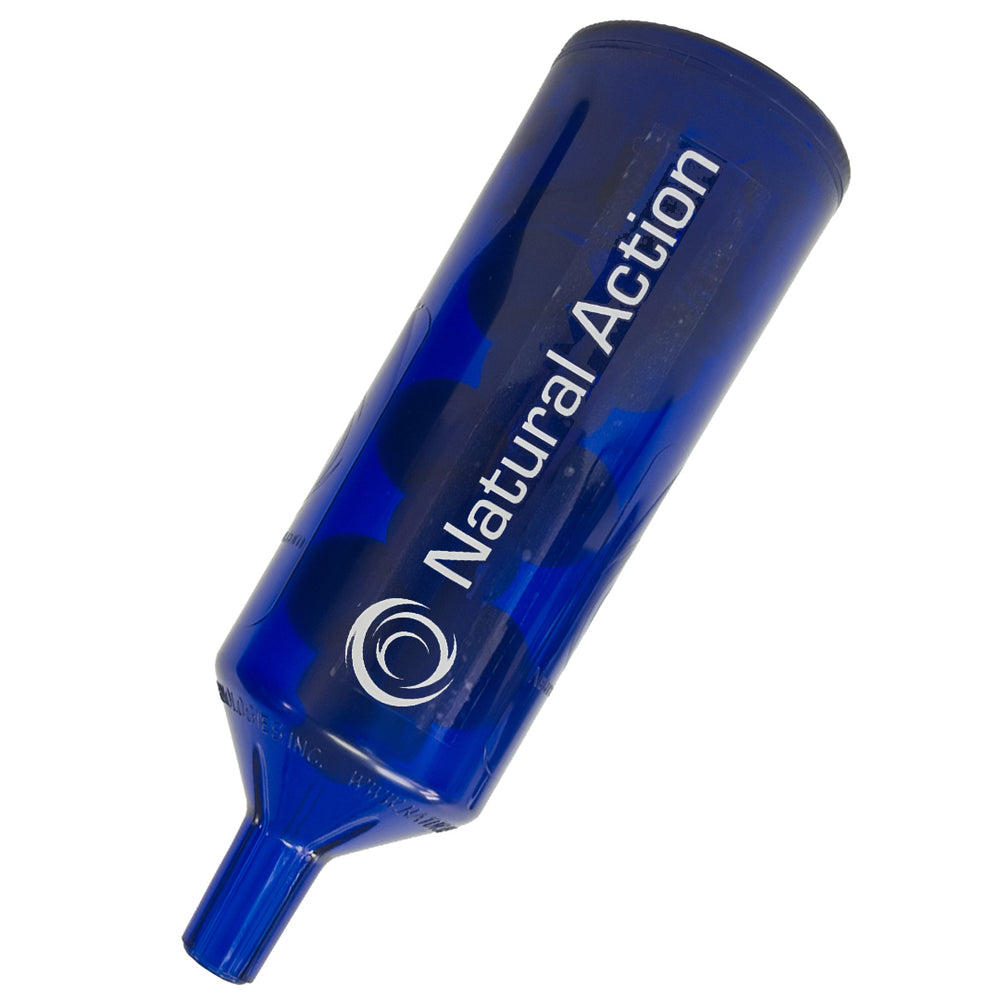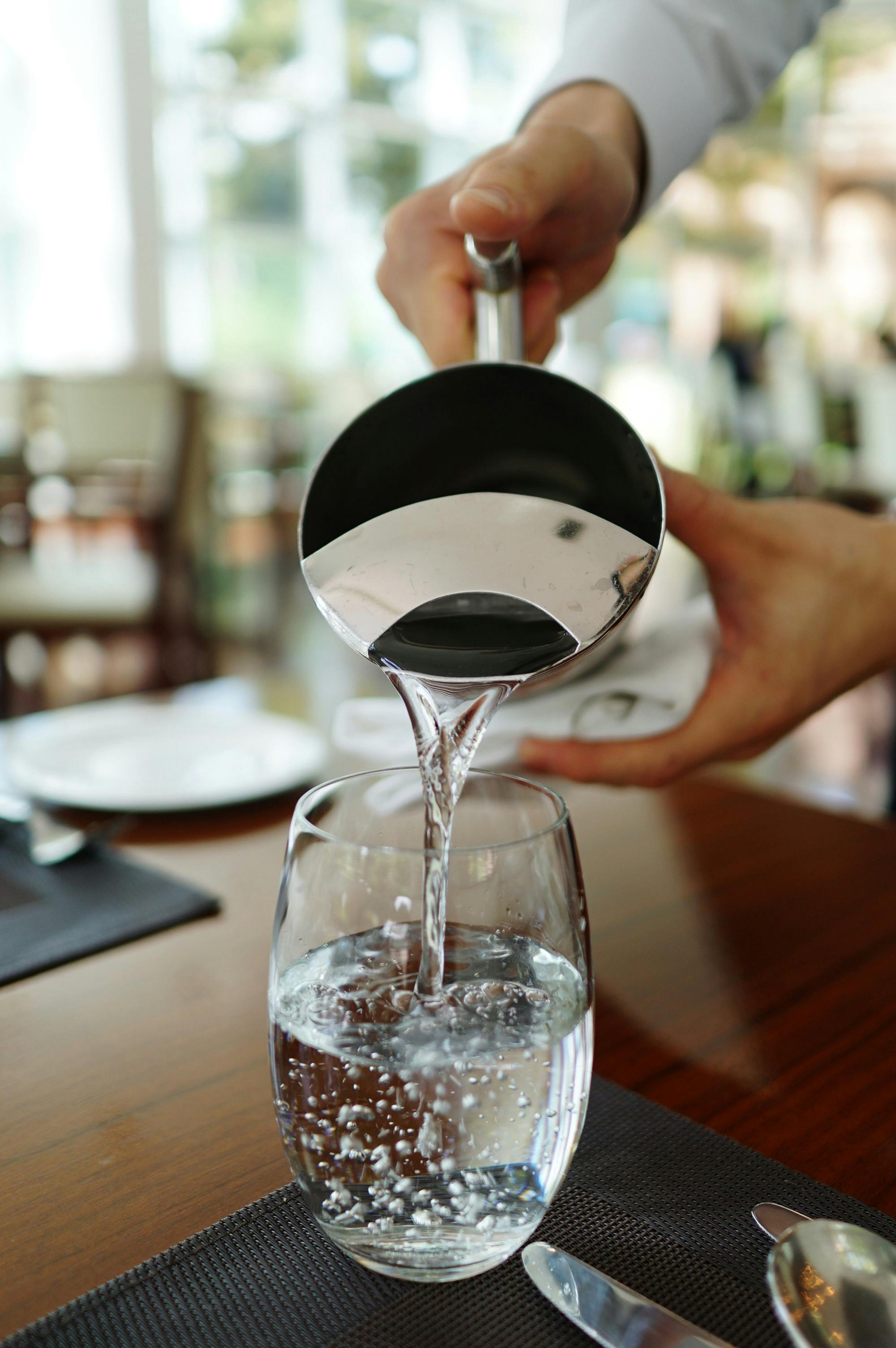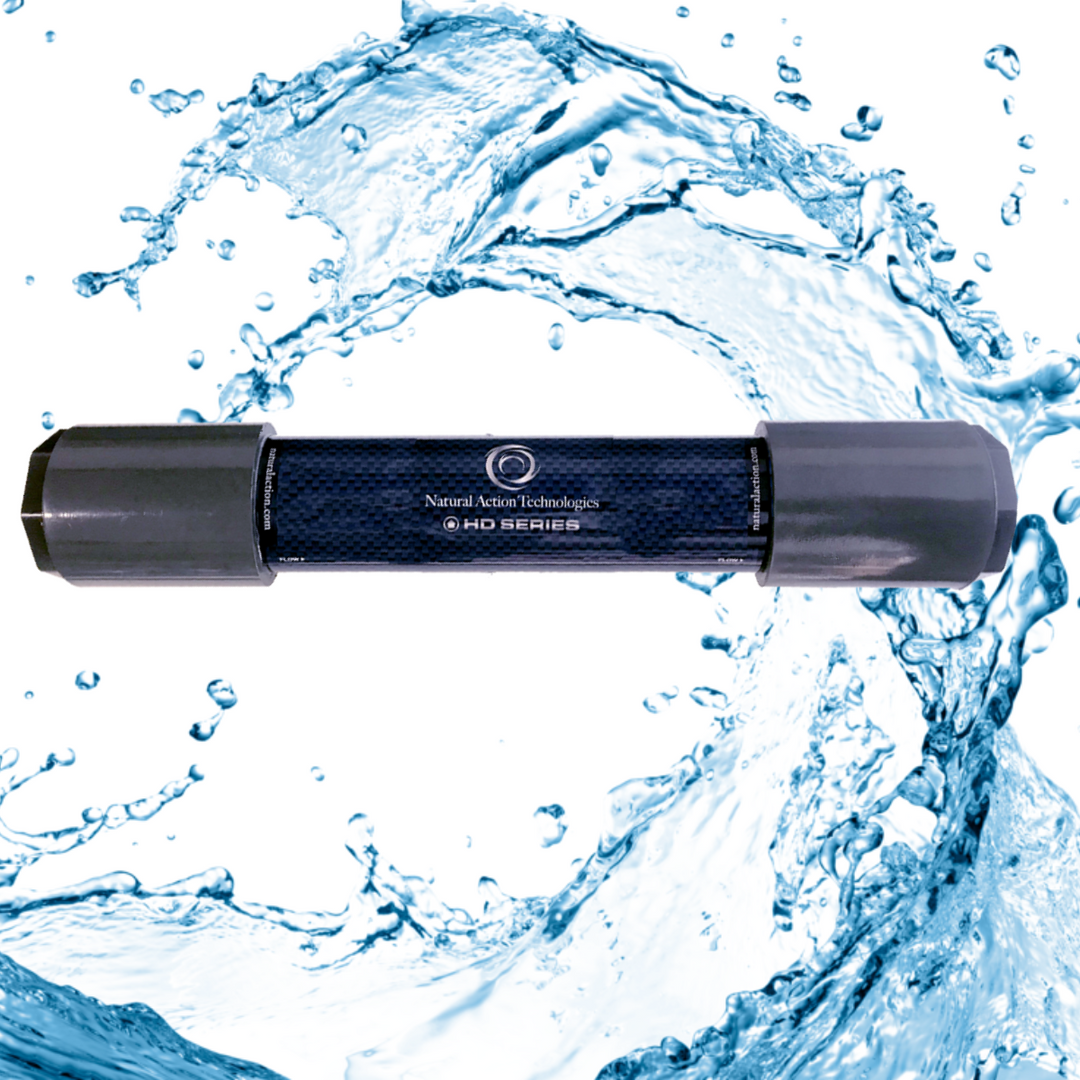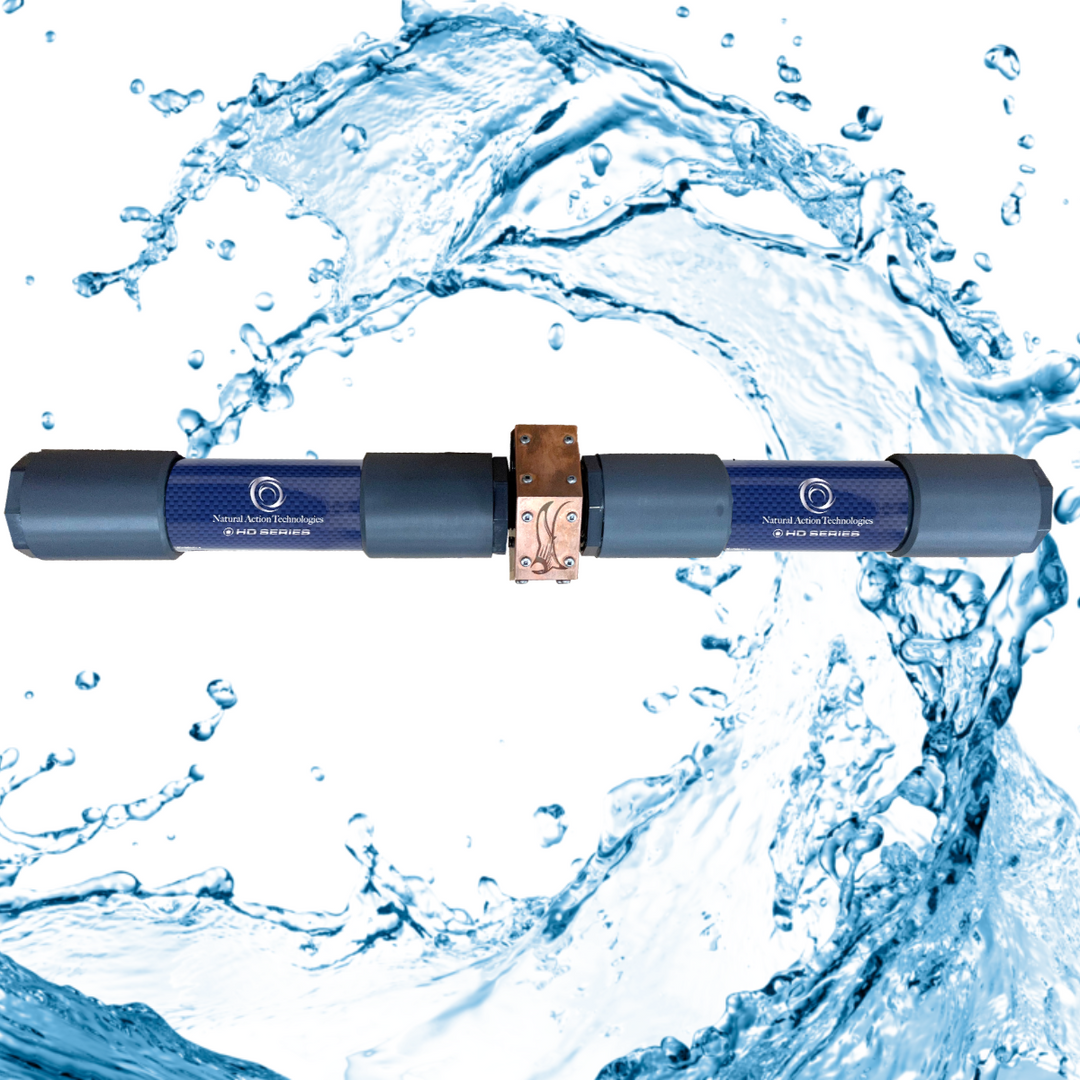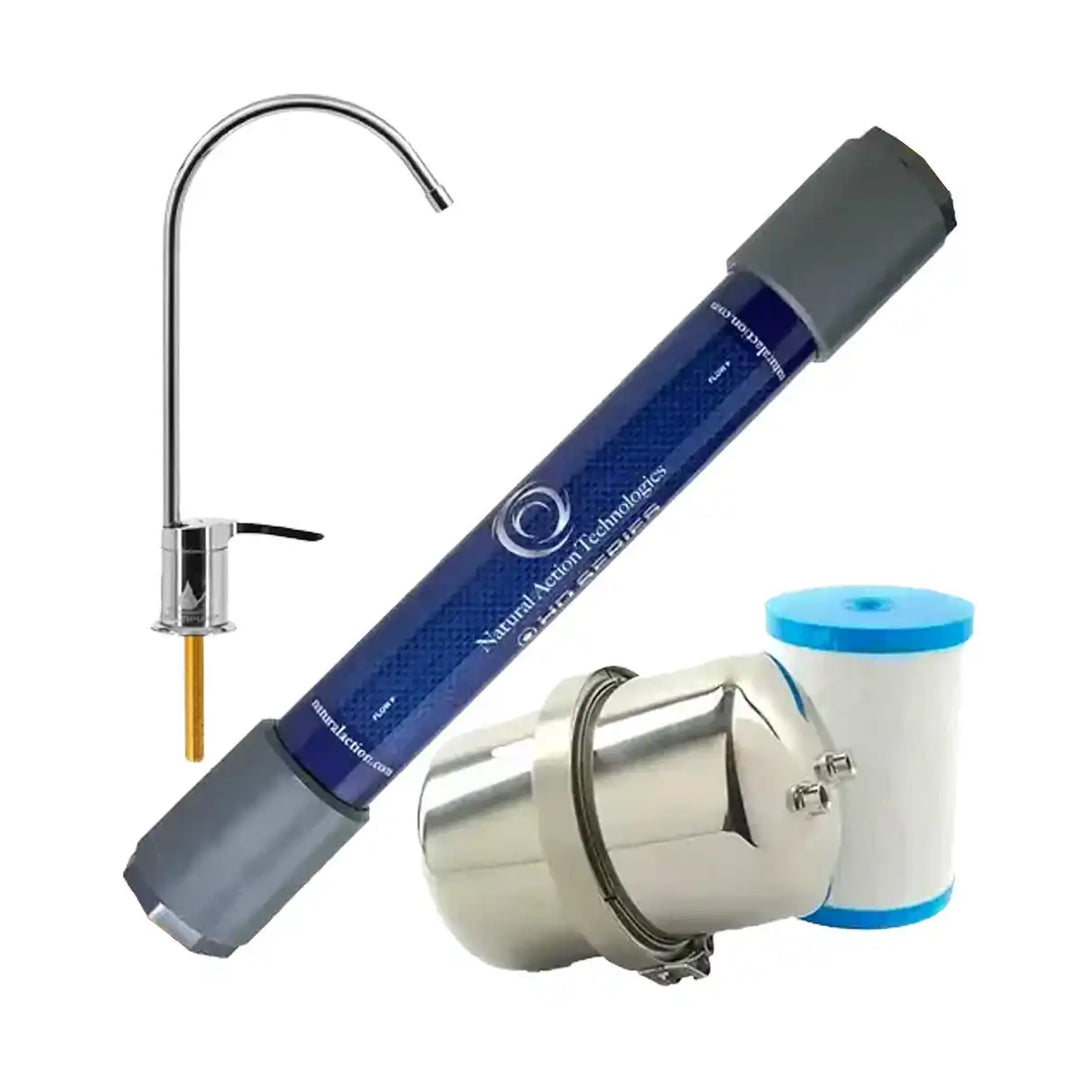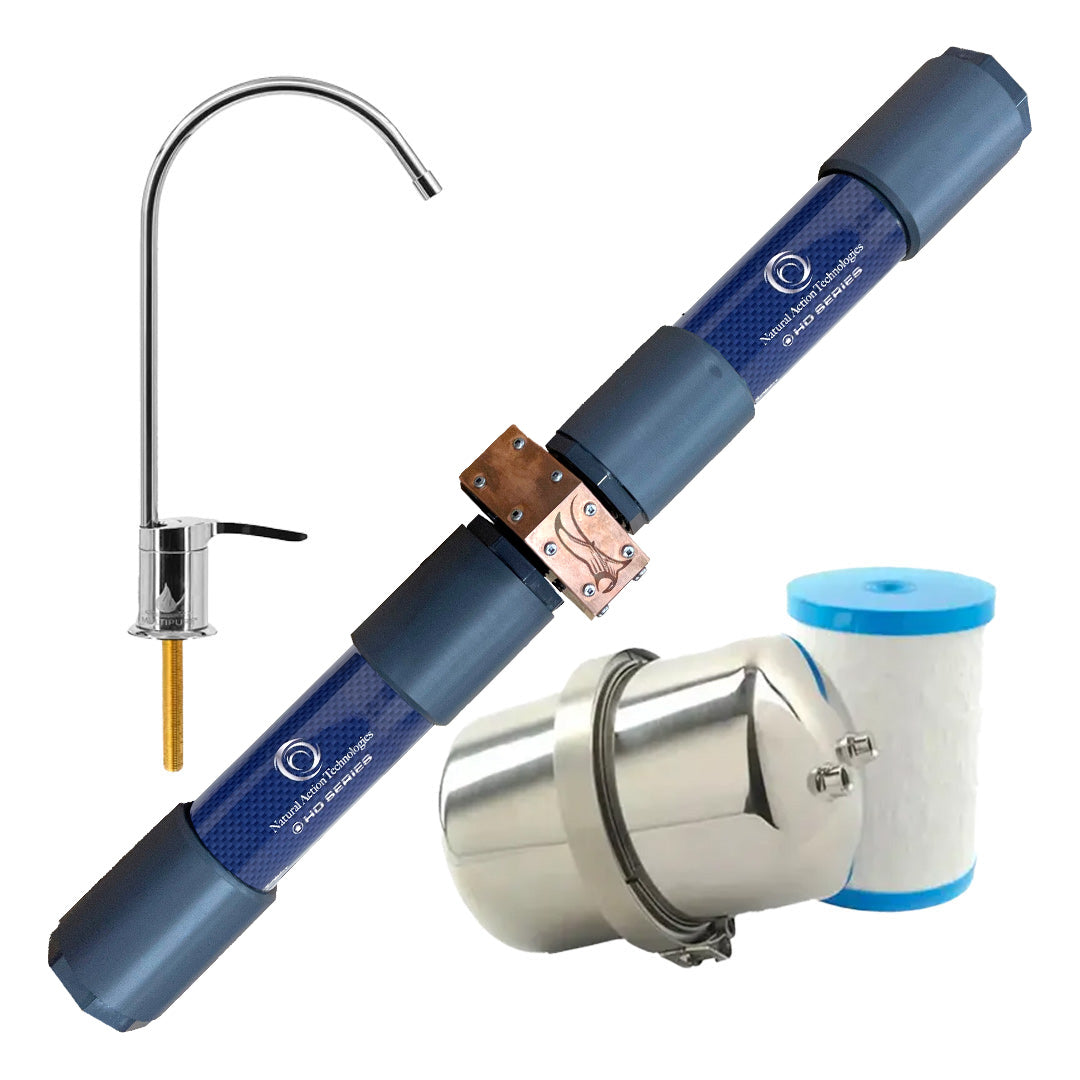All right, so this is one of the most important lessons in the whole course because now we're talking about other hydration techniques beyond just what kind of water you drink because there are other lifestyle factors at play that affect how much water your body is actually able to absorb. The water that you drink isn't much use if your body can't actually absorb it, right? The second half of hydration is making sure this living liquid life source actually gets into your cells and tissues so that it can work its magic. When we're born, we're 80 to 90% water volumetrically, but by the time we're elders, we're only about 50% water, and that's not necessarily because we're drinking less water, but our bodies lose the ability to absorb and retain it.
The clearest measure of your true biological age is your intracellular hydration, or how much water is inside your cells. And that's mostly influenced by, one, the quality of water you drink and how absorbable it is, which you are now 100% an expert on after this Water Class 101, and two, lifestyle factors, both in your internal and your external environment. But here's the main problem. Most people don't even realize that they're dehydrated. The most conservative estimates state that 75% of the population suffers from chronic long-term dehydration, and that's conservative. Dr. Zach Bush estimates that it's 100%, so I hate to break it to you, but you are dehydrated. You might not realize it because maybe you don't feel thirsty, but the body possesses many disguised thirst signals.
A lot of the signs of severe long-term dehydration are actually mistakenly seen as symptoms of disease. And water is the primary substance in every routine that takes place in the human body. The role of water should be the first thing that health care providers consider when a body that is 70% water falls ill. Before assuming that conditions have been caused by illness, water metabolism disturbance should be ruled out first. It's Occam's razor, right? The simplest solution is usually true. And the truth is that long-term chronic dehydration causes disease. In fact, even most chronic pain has been proven a signal of localized water shortage in the body. Each person's body has 100 trillion trillion water molecules. That's one with 26 zeros behind it.
In perspective, if you take a meter stick and place it end to end, and you do that 100 trillion trillion times, it would span the length of the entire universe, and that's how much water is in your body. But instead of hydrating these aquatic bodies, Western medicine treats thirst with medication. But if you ask any indigenous wisdom keeper, they'll tell you that water is our natural medicine. We've lost touch with our thirst sensation. And the more we ignore our thirst, the less we feel it. And the brain pathways responsible for registering hunger and thirst are very similar, so we often mistake thirst for hunger. And then the proteins necessary for us to recognize thirst also require adequate hydration in order to function.
Ironically, the more dehydrated we get, the more our thirst shows up as other symptoms besides just dry mouth.
Let's start with the most common reason that people are dehydrated in our society. Caffeine and alcohol. Tea, coffee, soda, even cacao, much to my chagrin. Even sugary juice. They all expend more water for the body to digest than they give back to us in hydration. Most modern Westerners are avoiding water as a beverage by instead choosing dehydrating caffeinated and sweetened drinks that only contribute to the problem. After all, caffeine is a well-known diuretic, as is sugar. We may think that we drink these sodas, coffee, and energy drinks, or for the healthier among us, even herbal teas, that we are in effect drinking a form of water, but as Dr. Batmanghelic, one of the world's most pioneering physicians in the field of hydration and medicine, has extensively shown in his research, these drinks make dehydration worse, causing a greater water loss overall than we take in.
For example, for every 10 ounces of a caffeinated beverage, be it coffee, black tea, soda, or an energy drink, we can lose up to 12 ounces of water. Let me say that again. Drink 10 ounces of a caffeinated beverage, lose 12 ounces of water. Even the healthy favorites like non-caffeinated herbal teas can also dehydrate because of the complex combination of diuretic molecules as well as the osmotic effect. People, please caffeinate responsibly. And if you've got to have that cup of joe, make sure you're getting in extra water, extra hydration. If you're drinking diuretic and or caffeinated beverages, you have to replace the water that your body loses while consuming them. For example, If you're drinking an 8 ounce diuretic beverage, you've got to add another 12 to 16 ounces of pure clean water on top of your optimal daily intake.
People ask me all the time, how much water should I be drinking? Well, it depends on the quality of water that you're drinking. If you're drinking distilled or reverse osmosis, it'll actually dehydrate you over time, so it doesn't really matter how many glasses you drink. But a general rule of thumb, if you're drinking good quality water, is to take your weight in pounds and divide it in half and drink that many ounces. If you weigh 120 pounds, drink 60 ounces. If you're drinking super high quality water, you can get away with a little bit less, unless you're sick and then you're drinking water therapeutically, then definitely drink more. It also depends on the quantity of electrolytes, et cetera. The best time to drink water is right now.
The second best time is definitely one whole liter as soon as you wake up in the morning, because you lose a lot of body water in your breath overnight. Take a nice hydrating internal bath right when you wake up. You can add it to your morning prayer and meditation practice if you like, thanking the water. And then according to some studies on healing disease with water, an ideal schedule would be half an hour before each meal, two and a half hours after each meal, and a glass before you go to sleep, but it's really not necessary to get all particular about it.
The next most common hydration mistake people are making is that they eat dehydrating foods. Our ancestors' diets were naturally full of bio-water found in fruits and veggies, as well as high-quality omegas found in animal foods that strengthen the cell membranes and allow our cells to retain more water.
So don't just drink your water, eat your water. Fruits and veggies are naturally full of structured water that are easier for the body to absorb and higher levels of antioxidants. In fact, in many desert regions, indigenous people don't drink much liquid water at all, but they eat really water-dense foods. Your body absorbs this hydration particularly well. Did you know that an apple or cucumber is actually more hydrating than a bottle of water? Because the fiber in the apple keeps the hydration in you longer, releasing it longer over time. Tap and bottled water can run right through you in as little as 10 minutes. But even more importantly, the juice of that apple or cucumber has natural electrolytes, minerals, nutrients, etc. that create electrical charges we've talked about over the past few videos.
That charge is what makes hydration fuel and gets hydration inside your cells. Your cells then have the energy and organization that they need to work in synergy with each other. Get an apple in your day and you'll find you need less liquid, and the liquid you do drink will stay in your system longer, so less peeing. Fruits and veggies also contain silica, which helps improve hydration inside your cells. One herbal supplement that has high amounts of organified silica is horsetail. Just avoid mineral silica as it actually promotes oxidation and dehydration. And get plenty of chia seeds into your diet too, because they convert liquid water into gel water, which again, helps your body retain hydration. You can also build healthy cell membranes that retain intracellular hydration by eating lots of amino acids, lipids, antioxidants, eat grass-fed pasture-raised meat and dairy, wild, not farmed fish, flax seeds, chia seeds, walnuts, all high in long-chain amino acids, high in omega-3s and 6s, to stay away from fat-free foods.
Picture this. Healthy cell membranes kind of look like a sandwich, where the bread is tons of unrefined omega-3 and 6 fats, and the filling is made of phospholipids, mainly phosphatidylcholine. It's super fatty and oily goodness, so you want to get lots of good fats in your diet so your cell membranes retain hydration. Being around electronics all the time also has a really adverse effect on your hydration. Plus, Dr. Larry Wang and his research actually found that we blink 66% less when on the computer, so our eyes aren't as moisturized, and we get a buildup of toxicity during our computer time and phone time, and this toxicity also makes our kidneys use up a lot of water as it tries to detoxify us.
And there are so many other lifestyle factors at play too, because you are a body of water, so everything you do affects your body water. But there are two main things to keep in mind when you want to refresh, renew, revive, and restore your body water.
There are two factors, irrigation and hydration. Irrigation is your actual drinking water and eating water-dense foods. It's what we've been talking about for the whole course, drinking water, irrigating your body. Hydration, on the other hand, is the chemical process where water molecules bind with proteins and other substances in your body, and it's how you actually absorb and use the water that you drink. Irrigation is easy, but actual hydration can be more of a process. And movement is actually one of the most important aspects of hydration.
Because your fascia acts as a hydraulic system. It's one of your body's main modes of hydration and irrigation, sending water where it's needed most. The highly structured web of water and protein has hollow tubing and slide-like sheets that actually send the water that you drink into your tissues. But your fascia can't do this while you're sitting still. I'm sure you've probably heard the new statistics about how sitting is the new smoking and being sedentary is one of the worst things that we can do for our health. It's because our body waters, just like the waters in nature, need to move. They're not meant to be stagnant. In fact, movement is the necessary next step in hydration after drinking. Movement actually draws hydration all the way through our tissues and into our cells.
It's quite literally the other half of hydration. Drinking starts the hydration process with irrigation, but movement completes it.
The end. You made it all the way through. Congrats, and may you enjoy hydration for life. This has been your crash course in hydration and I'm so proud of you for sticking with it and making the changes to your hydration strategies and your lifestyle that will keep you vital, vibrant, healthy, and juicy for life. And I'm so grateful for your presence and your openness to receive this information and I'm humbled by your trust.




